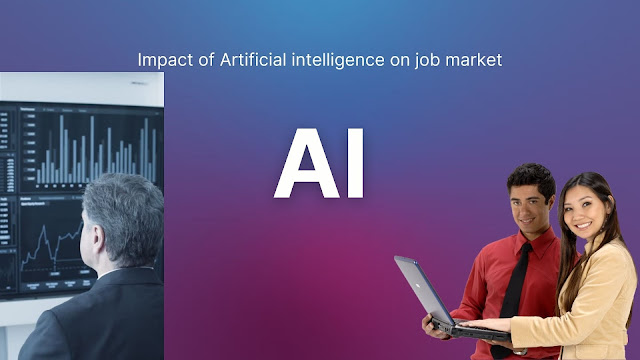Artificial intelligence (AI) is a rapidly growing field that has the potential to revolutionize the way we live and work.
While AI has the potential to bring significant benefits to society, there are concerns that it could also have a negative impact on the job market and the economy.
In this essay, I will discuss the impact of artificial intelligence on the job market and the economy.
Firstly, it is important to understand what artificial intelligence is and how it works. AI refers to computer systems that are designed to perform tasks that would normally require human intelligence, such as learning, problem-solving, and decision-making.
AI is achieved through the use of algorithms, which are sets of instructions that tell a computer how to perform a specific task.
One of the key benefits of AI is that it can automate tasks that are repetitive, mundane, or dangerous for humans to perform.
This can lead to increased efficiency and productivity, as well as improved safety in the workplace. For example, in manufacturing, AI can be used to automate tasks such as quality control and inspection, which can help to reduce errors and improve the overall quality of products.
However, the increased automation of tasks through AI can also have negative consequences for workers. As AI systems become more advanced, they may be able to perform tasks that were previously done by humans, such as driving, customer service, and even medical diagnosis.
This could lead to job displacement and unemployment for workers in these industries.
Furthermore, AI has the potential to impact the economy in several ways. One potential impact is that it could lead to increased productivity and economic growth.
As AI systems become more advanced, they may be able to perform tasks more quickly and accurately than humans, which could lead to increased output and efficiency in industries such as manufacturing, healthcare, and finance.
However, the increased automation of tasks through AI could also lead to a decline in demand for certain types of jobs.
For example, if self-driving cars become widespread, there may be less demand for truck drivers and delivery drivers. This could lead to job displacement and a decline in the number of available jobs in these industries.
Another potential impact of AI on the economy is that it could lead to increased income inequality. As AI systems become more advanced, they may be able to perform high-skilled tasks that were previously done by humans.
This could lead to an increase in demand for workers with advanced technical skills, such as programmers, data analysts, and engineers. However, workers in industries that are more easily automated, such as manufacturing and customer service, may see their jobs displaced by AI systems.
This could lead to a widening gap between high-skilled workers and low-skilled workers and could exacerbate existing income inequality.
To address the potential negative impacts of AI on the job market and the economy, it is important for policymakers to take action.
One potential solution is to invest in education and training programs that can help workers develop the skills they need to adapt to a changing job market.
For example, workers in industries that are at risk of automation could be trained to work in fields such as cybersecurity, data analysis, and software development, which are less likely to be automated by AI systems.
Another potential solution is to provide support for workers who are displaced by AI systems. This could include financial assistance, retraining programs, and job placement services. Governments could also consider implementing policies such as universal basic income, which would provide a basic level of income to all citizens, regardless of their employment status.
In conclusion, while AI has the potential to bring significant benefits to society, it is important to carefully consider its impact on the job market and the economy. The increased automation of tasks through AI could lead to job displacement and income inequality, but there are solutions that policymakers can implement to mitigate these effects. By investing in education and training programs, providing support




No comments:
Post a Comment
Edit your Comment